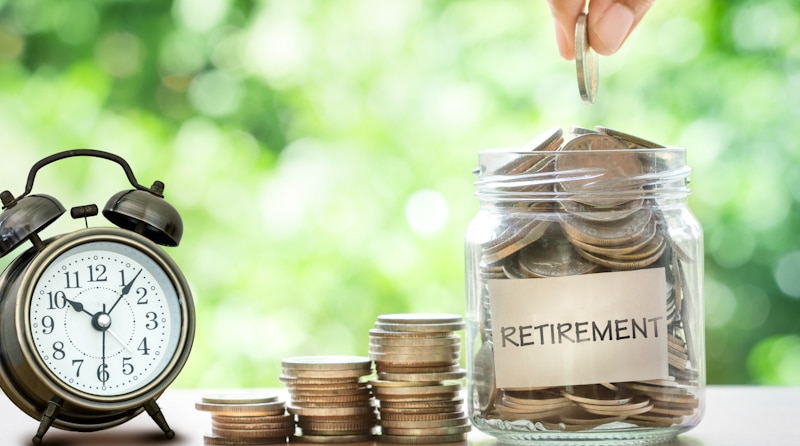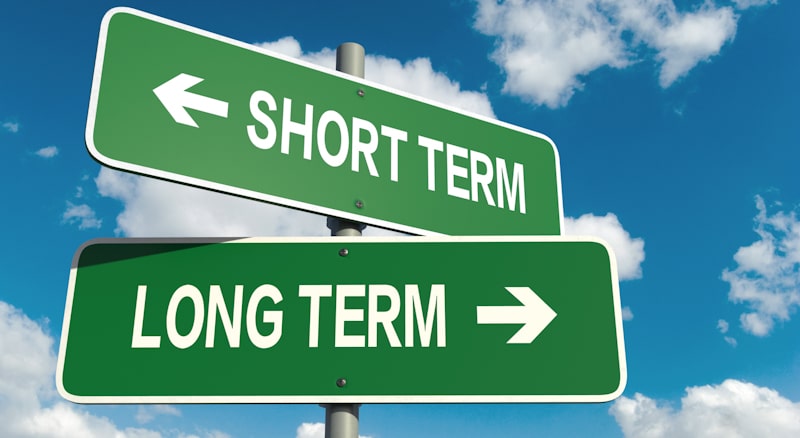

Budgeting is widely discussed in our world as a means of success. It makes sense to save money - but what is budgeting? Why is budgeting critical for the average person?
To budget is to allot a certain amount of money to a particular item, and budgeting involves creating a spending plan for various needs. Budgeting is critical because it provides financial stability and helps you prepare for the future, among other things.
If you budget well, you can experience peace of mind in your life with practical spending. We’ll dive deeper into budgeting, why it matters, and some practical ways you can budget.
A budget is a type of plan that allows you to set financial goals, plan for the future, and balance income. Typically, a budget works for a specified period. It may be a weekly, monthly, or even yearly budget to keep your life on track.
There are several different types of budgeting. Some map out every aspect of your life, while others focus on a few key points where saving is necessary. Everyone budgets differently, and there are multiple ways to lay the groundwork for intelligent spending.
It makes sense to save money. However, at its worst, budgeting can feel like a deprivation of wants and needs. Why is a budget critical? Is it necessary for your life, or is it something that can receive dismissal in the average home life?

A budget is far from a restriction for those who want to make more intelligent choices with their money. There are many reasons why individuals should value this strategy as they gain additional finances. If you are interested in budgeting but aren’t sure why you should care about it, here are a few items that may interest you.
Plotting out money in this manner is critical because it allows:
It’s a quality choice for your future.
Let’s dive deeper into each item to determine why you need a budget in your life. If you manage to plot out your finances, you can gain a solid footing and advantage in the world as you grow older and prepare for the future.
There is nothing worse than feeling like your money is controlling you. A budget is a way to pull your information together and determine your financial situation. From there, you can decide on a path to success with a budget.
If you struggle with debt, budgeting is a way to get everything in line. You can create limits and physically map a path toward improvement. Financial stability is much easier when you can map a goal.
Of course, it’s possible to push yourself back into security. However, a budget makes it much easier and can speed up the pace as you move into a world of comfort within your finances. You can have a more confident grip on the universe.
Life is scary when money comes into the picture. How will you save up for a car? A home? It’s easy for things to get out of reach when you don’t have a goal for your finances.
A budget makes money less complicated to handle. Rather than worrying about where your funds will go, a budget helps determine what you have and what you need to do with it for financial success.
Budgets make it simple to map out your goals. They reveal the best ways to save money and where most of your spending needs to go. There is pain with a budget - you may have thought you could afford a vacation, but you can’t when it’s all laid out.
Focus is not a bad thing. It may deprive you of luxuries, but it makes purchasing the necessities a breeze. Once you have the requirements, you can invest in the things you don’t need to live a quality life.
It’s easy to spend money you don’t have when there is no budget to keep you in check. Most of this trouble occurs with credit cards - you don’t have to pay for it immediately, so why not swipe the card? Spending money you don’t have quickly evolves into credit debt.
Before credit cards, fewer people chose to spend more than they needed. There’s something different about swiping a credit card instead of handing over a stack of cash to purchase a luxury.
Thanks to this change, it’s more critical than ever to have a budget. This action will ensure you don’t make rash choices and push beyond your means more often than is necessary. It’s possible to live within your means and still enjoy life and all it offers for human beings.

Retirement might seem like a far-off time, but it comes fast. If you want to retire at a decent age, it’s critical to have a budget. Keeping track of your spending will ensure you have enough left to live on when settling down for the rest of your life.
When budgeting, you can set aside money to make investments for your retirement. A portion of your income can go towards items like your 401(k), IRA, and additional financial gatherings for the coming years.
It might seem tempting to purchase that fancy car now, but it’s critical to consider the future. If you spend the money now, you will have that much less when you want to settle down and retire. Budgeting makes it more possible to have a happy and quality retirement.
Emergencies can strike at any moment. If the crisis involves replacing a car or making a trip to the hospital, it can take precious dollars from your savings. If your budget for emergencies, however, it doesn't provide as much of an impact on your finances.
When budgeting per month, a portion should go into an account for emergencies. Even anything as little as $50 can make a difference if a crisis emerges. In an ideal world, you should have enough money in your emergency fund to last three to six months of living expenses.
It’s critical to place your additions to the emergency fund into your budget. You don’t want to add in big chunks - keep it simple and fund this backup savings section a little at a time. When an emergency arises, you can thank your budgeting for the additional funds.
When you sit down to budget, it will reveal any poor spending habits you have. There is no way to escape a look at your budget in this manner. It will become apparent if you spend too much on luxury goods, fast food, and other unnecessary additions to your life.
Once you understand your poor spending habits, you can remove them from your budget. Just cutting down on a few fast-food trips a week can increase your savings per month by at least $100. It doesn’t take much to put additional savings in your account by saving.
A budget may also help you consider what you need and don’t need. Do you need that subscription to a television channel you don’t use? Budgets force a careful consideration of what is necessary and what is an unnecessary extra.
It’s critical to note that it’s still possible to enjoy additional items without going overboard. Ensure you map out your treats throughout the month and note items you want to buy at the end of the year. As you continue forward, you can work to save for these items.
Budgeting is critical if you want to achieve financial stability and put your money in the proper places. However, it can be tricky to determine how to form your first budget if you’ve never undergone the process before. Here are a few simple tips to help create your first budget and access the benefits it provides.
These can help you form your first budget with ease:
Use these to bring your budget to life and put meaning behind the choice to save money.
Let’s talk more about these tips to help you better understand why they will benefit your life. Each of these items may work for a different person. It doesn’t hurt to test each of these strategies, then determine which will work for you and which are better left to someone else’s budgeting experience.
Why do you want to budget? This question is critical when starting the budgeting process. If you don’t have a reason behind your money choices, there is little reason to be so careful with your hard-earned money. It’s vital to make that obvious as you map everything out.
It’s critical to create specific questions when saving money. Who are you doing this for? What matters to you? What is a semi-challenging goal you can form for your financial needs? How can you challenge yourself financially?
If you have a reason to budget, it will make the process much easier. You will be more willing to get rid of unnecessary items to put aside additional funds in savings each month. Without the reason you’re being careful with your cash for some invisible reason unknown to yourself.
One of the best ways to budget is to put spending into different categories. By separating each item, you can designate each portion of your monthly paycheck into the items you need to spend money on. Categories make it obvious to divide up your finances.
Many people write down separate categories, but others choose to do it physically. They take envelopes, label them with each item, and put cash inside each envelope. This technique allows you to see where each section of the paycheck goes each month.
You can have as few or as many categories as you want. Include items like food, theme park trips, and clothes. If you require a product, create a category and budget for the item accordingly.

Short-term and long-term goals are two different items to consider with a budget. One involves setting aside money for an extended period, while the other means handing over a section of cash right away to receive an item or a service.
Short-term goals may include items like vacations, furniture, cars, and even a deposit into a specific fund. The money goes into the category right away and you don’t have to worry about saving or keeping it set to the side.
Long-term goals may include items like paying off debts, taking a trip around the globe, retirements, and even a down payment on a home. They are bigger costs that you need to save for over a longer period.
Fixed and variable expenses should also be considered and set apart. Fixed expenses don’t change - every month, they are the same. You can place the exact amount in your budget without worrying that it will change as time goes on.
Here are a few examples of fixed costs you may encounter in your life:
These remain the same as time goes on.
The opposite of this is variable expenses. These costs change every time you pay them, so they can be trickier to pay for in your life.
Here are a few examples of variable expenses:
These won’t stay the same.
Once you determine your fixed and variable expenses, you can budget accordingly. After a time, it will become clear how much you need to set aside each month. Variable and fixed expenses are a part of every life.
Lastly, consider making a monthly budget. You can make daily, weekly, and even yearly budgets. However, many expenses are monthly. Forming a monthly budget will segment the year into twelve months and make expenses much simpler to handle.
A monthly budget also helps you determine how much you want to save each month. This action may look different for everyone - a single mom saving for a house will have a different plan than a multi-million-dollar owner of a business.
Most people go by a plan known as the 50/20/30 rule per month. This choice involves placing 50% of your income towards what you need, 20% of your income towards saving and debts, and 30% towards items that you want. This plan keeps everything in perspective.
Budgeting is an effective way to get your finances in order. It creates stability, lays the groundwork for retirement, prevents excess spending, allows emergency preparation, and reveals poor spending habits you may have. When you budget for the first time, ensure you differentiate categories and make various goals for short and long-term needs.
When you have a budget in place, you can make better choices about your spending. More money allows you to make more worthwhile purchases while saving for retirement and potential injuries. The best budget flexes with you - it should provide stability without turning your life into one of misery.

